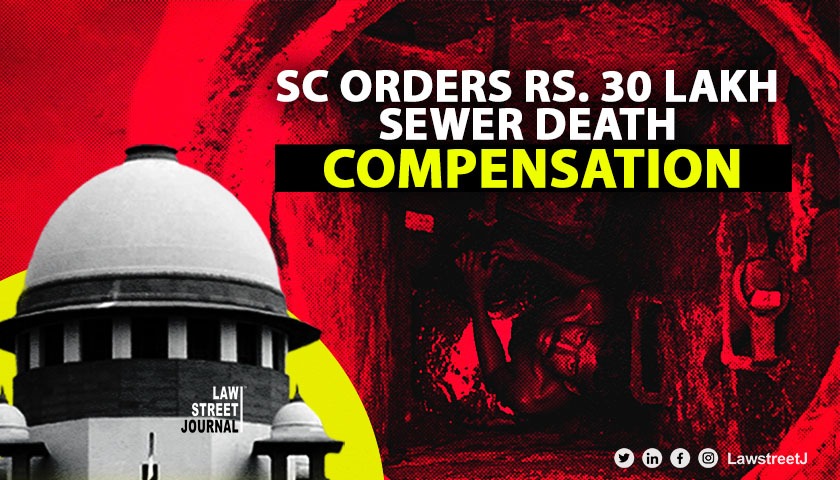NEW DELHI: The Supreme Court on Friday directed the government authorities to pay a compensation Rs 30 lakh to the kin of those who die while cleaning sewers.
A bench of Justices S Ravindra Bhat and Aravind Kumar expressed grave anguish at the practice of manual scavenging, which still continues, despite the law prohibiting it.
The Prohibition of Employment as Manual Scavengers and Their Rehabilitation Act, 2013 not only criminalizes manual scavenging but also provides for rehabilitation mechanisms to ensure that manual scavengers are emancipated, it noted.
The court pointed out the clear purpose and intent of the 2013 Act and Rules is to ensure the mechanization of sewer and septic tank cleaning.
"In other words, the 2013 Act and Rules intends that no person should have to come in direct contact with human excreta and that protective gear and cleaning devices must be provided to ensure this. The protective gear and cleaning devices required to be prescribed under the Rules would also be required to be in furtherance with this purpose. That is to say, the prescribing authority must keep in mind that the protective gear and cleaning devices given to a hazardous cleaner ensure that he does not come into contact with human excreta," the bench said.
The bench directed that in case of death while cleaning sewers compensation must be Rs 30 lakh and those who suffer permanent disabilities should be paid Rs 20 lakh as minimum compensation. Justice Bhat said the authorities will have to pay up to Rs 10 lakh if the cleaner suffers other disabilities.
The bench said people owe to this large segment of the population, who have remained unseen unheard and muted, in bondage systematically trapped in inhuman conditions.
"The Union and the States are duty bound to ensure that the practice of manual scavenging is completely eradicated. Each of us owe it to this large segment of our population, who have remained unseen, unheard and muted, in bondage, systematically trapped in inhumane conditions. The conferment of entitlements and placement of obligations upon the Union and the States, through express prohibitions in the constitution, and provisions of the 2013 Act, mean that they are obliged to give real meaning to them, and implement the provisions in the letter and spirit," the bench said.
The bench said the central government and the state governments must ensure that manual scavenging is completely eradicated and issued a slew of directions.
The apex court directed that the government agencies must coordinate to ensure that such incidents do not occur and the high courts are not precluded from monitoring the cases related to sewer deaths.
The order was passed in a PIL filed by Dr Balram Singh against manual scavenging.
"Upon all of us citizens lie, the duty of realizing true fraternity, which is at the root of these injunctions. Not without reason does our Constitution place great emphasis on the value of dignity and fraternity, for without these two all other liberties are chimera, a promise of unreality. It is all of us who today proudly bask in the achievements of our republic, who have to awake and arise, so that the darkness which has been the fate of generations of our people is dispelled, and they enjoy all those freedoms, and justice (social, economic and political) that we take for granted," the bench added.














